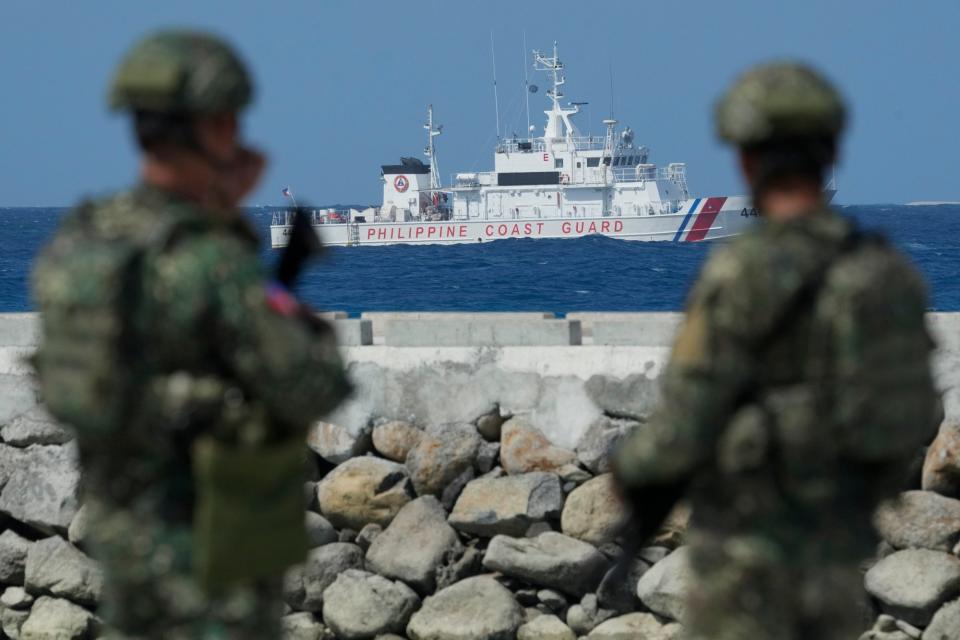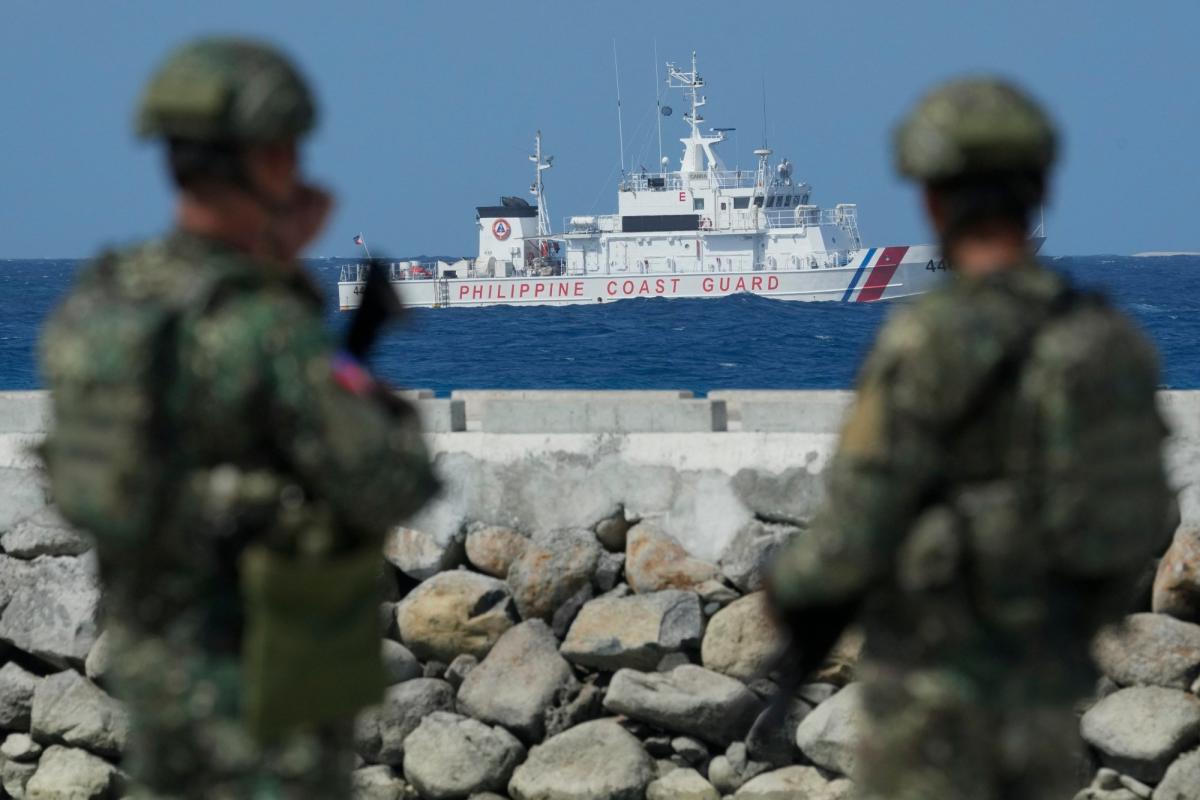A quote by the Philippines to have the United Nations officially acknowledge the level of its continental seabed in parts of the challenged South China Sea might motivate comparable claims from competing claimant states, observers stated.
The UN may not offer what Manila desires, however the action will include layers of intricacy to the currently twisted local conflicts and potentially cause harder countermeasures from Beijing, they included.
The Philippines recently submitted a submission to the UN Commission on the Limitations of the Continental Rack (CLCS), looking for verification on the level of its undersea continental seabed in the West Palawan Area dealing with the South China Sea, according to Manila’s foreign ministry.
Do you have concerns about the most significant subjects and patterns from all over the world? Get the responses with SCMP Understanding, our brand-new platform of curated material with explainers, Frequently asked questions, analyses and infographics gave you by our acclaimed group.
“The seabed and the subsoil extending from our island chain as much as the optimum level permitted by Unclos hold considerable prospective resources that will benefit our country and our individuals for generations to come,” Philippine Foreign Assistant Secretary Marshall Louis Alferez stated in a declaration.
Unclos is the 1982 United Nations Convention on the Law of the Sea, which grants unique rights to make use of natural deposits in continental rack to a seaside state.
The relocation by the Philippines drew speedy opposition from Beijing, which prompted the commission not to evaluate Manila’s submission as it included challenged maritime area.
China’s foreign ministry representative Lin Jian stated on Monday that the commission must rule out or certify the submission by the Philippines if it includes delimitation of challenged waters, in line with the guidelines of treatment of the CLCS.
Lin stated Beijing was still collecting info, however Manila’s “unilateral submission” of a prolonged continental rack infringes upon China’s sovereign rights and jurisdiction.
Maritime affairs professionals held comparable views, forecasting that Manila’s quote was not likely to prosper, and Beijing would see the relocation as a legal difficulty that even more made complex the South China Sea conflicts.
“It appears not likely that CLCS will have the ability to confirm any such claim … the Commission has, as a guideline, prevented making any delimitation choices when there are impressive jurisdictional or sovereignty conflicts,” stated Isaac Kardon, senior fellow for China research studies at the Carnegie Endowment for International Peace.
Beijing would see the claim as “another legal and political difficulty from Manila” much like the 2016 South China Sea arbitration, and see it as an effort to weaken China’s comprehensive claims utilizing a UN institutional technique, he included.

Info was still being collected about Manila’s “unilateral submission” of a prolonged continental rack, China’s foreign ministry stated on Monday. Picture: AP alt=Info was still being collected about Manila’s “unilateral submission” of a prolonged continental rack, China’s foreign ministry stated on Monday. Picture: AP>
Mainland China declares practically the whole South China Sea, consisting of parts declared by the Philippines, Brunei, Malaysia, Taiwan and Vietnam.
In 2016, a global tribunal ruled in favour of the Philippines, dismissing China’s broad claims as having no legal basis. Nevertheless, Beijing has actually declined and criticised the judgment.
Professionals stated that although the information of Manila’s submission had actually not yet been revealed, its continental rack claims may overlap with those of other seaside states in the South China Sea, and might possibly move other claimant states to embrace comparable techniques.
“The Philippines’ submission might be a possible threat that sets a precedent for other claimant states, and they might submit comparable ECS (extended continental rack) submissions to assert their rights,” stated Ding Duo, an associate research study fellow at the National Institute for South China Sea Researches in Hainan.
He included that claimant nations might submit their submissions individually, however joint submissions were likewise possible, and either scenario would even more make complex the South China Sea conflicts.
“This will make the conflict a lot more complicated and more difficult to solve, and presents a brand-new point of contention for how Beijing and Manila must correctly handle and manage their distinctions in the South China Sea,” Ding stated.
“In a nutshell, Manila’s behaviors include more intricacy to the currently made complex South China Sea conflicts, instead of streamlining it.”
However Lucio Pitlo III, the president of the Philippine Association for Chinese Research studies, stated the Philippines’ newest relocation and the 2016 arbitration belonged to its efforts to utilize worldwide law to secure its maritime claims.
“Both will impact the interests of other disputants in the semi-enclosed sea, although formally, the 2016 judgment just binds Manila and Beijing, a judgment China continues to decline. In like way, a unilateral ECS submission might likewise affect the interests of other littoral states,” he stated.
Maritime observers forecasted that Beijing would strike back versus Manila with difficult functional and diplomatic procedures.
“China may likewise increase the strength of their interdictions at 2nd Thomas Shoal or intensify in other places in the South China Sea versus Philippines interests,” Carnegie’s Kardon stated, including that China may likewise pick to release standards around the Spratlys to refute the Philippines’ claims.
Standards are an essential idea in specifying maritime borders and asserting jurisdictions over resources, which function as the beginning points from which a nation’s territorial sea, unique financial zone, and continental rack are determined.
Beijing might go with more powerful countermeasures to secure its rights at sea, specifically throughout stand-offs with Philippine vessels in the South China Sea, according to Ding.
“Beijing thinks it is vital to make Manila pay a cost for its actions, otherwise it will continue to provoke and strike the nerve consistently,” he stated.
The current clash took place on Monday when the Philippines sent out another resupply objective to an aging ship that was intentionally grounded on the 2nd Thomas Shoal to assert Manila claims. Beijing stated Manila had actually tried to provide building products, which China has actually ruled undesirable.
The Chinese coastguard stated on Tuesday that it put in control procedures over the Philippine vessels throughout Monday’s accident, such as releasing cautions, boarding the Philippine ship and carrying out examinations.
Ding stated the relocation was a clear presentation of Beijing’s willpower to execute efficient control procedures in reaction to the Philippines’ actions.
Estimating a confidential source, the Philippine media reported that China Coast Guard pulled among the Philippines’ boats and took the team’s guns throughout the Monday encounter, while likewise hurting some Filipino team members.
This short article initially appeared in the South China Early Morning Post (SCMP), the most reliable voice reporting on China and Asia for more than a century. For more SCMP stories, please check out the SCMP app or check out the SCMP’s Facebook and Twitter pages. Copyright © 2024 South China Early Morning Post Publishers Ltd. All rights scheduled.
Copyright (c) 2024. South China Early Morning Post Publishers Ltd. All rights scheduled.
